IN THIS ARTICLE
If you suffer from hay fever, here you will learn from us what helps in relieving your symptoms.
Hay fever is cruel, after all, there should be nothing better than lying in the grass and eating strawberries. However, hay fever turns a relaxing day outdoors into a nasty experience with watery eyes and runny nose.
About a quarter of people in Germany suffer from hay fever. Your hay fever may be earlier or more severe this year, possibly due to climate change and stress. Lifestyle habits can also aggravate hay fever. Get tips on how to relieve your symptoms.
What are the symptoms of hay fever?
Hay fever is a reaction of the immune system and is also called allergic rhinitis. Symptoms can be seasonal, year-round, or occupational and usually include one of the following pollen allergy symptoms:
- Sneeze
- Itchy or runny nose
- Blocked nose
- Itchy, red or watery eyes
- Itching or scratching in the throat
- Cough
- Fatigue
- Irritability
In some cases, more severe pollen allergy symptoms such as difficulty breathing, shortness of breath and wheezing may also occur. However, it is especially important to see a doctor if symptoms are severe or last longer than a week.
When is the time for hay fever?
The time for hay fever depends on allergens. In Central Europe, pollen from trees such as birch, alder and ash occurs in spring, and grass pollen such as rye or mugwort in summer. In autumn, pollen from herbs and weeds such as ragweed can cause hay fever. However, hay fever can also occur outside of these seasons, depending on specific allergens.
The exact reason for hay fever is not exactly known. Pollen allergies are considered to be genetically determined. The risk for hay fever is increased if there are already sufferers in the family.
Symptoms of hay fever are triggered by allergen contact. Allergens are substances that cause allergic reactions and lead to typical symptoms.
When the immune system of a sensitive person comes into contact with an allergen, it recognizes it as a foreign substance and produces the antibody IgE. This binds to mast cells and leads to the release of inflammatory mediators, causing hay fever symptoms.
How can you relieve pollen allergy symptoms?
There are several natural methods for relieving hay fever symptoms, including:
- Do regular nasal rinsing with salt water
- Use an inhaler with essential oils such as peppermint oil or eucalyptus oil
- Eat lots of foods rich in antioxidants, such as berries and green leafy vegetables
- Eat honey from the region to strengthen the immune system against local pollen
- Drink herbal teas like nettle or chamomile tea
- Apply petroleum jelly around the nose to trap pollen.
- Sunglasses can minimize the contact of your eyes with allergens
- Support with natural antihistamines in the form of food supplements
- Shower and wash your clothes when you get outdoors to rinse off pollen.
- Stay indoors a lot during pollen alerts
- Keep windows and doors closed whenever possible.
- Vacuum regularly and wipe down your furniture with a damp cloth.
- Buy a pollen filter for the air vents of your car and a vacuum cleaner with a special pollen filter
These dietary supplements support with hay fever
Did you know that you can specifically support your immune system to reduce hay fever symptoms? There are certain nutrients that can improve your well-being.
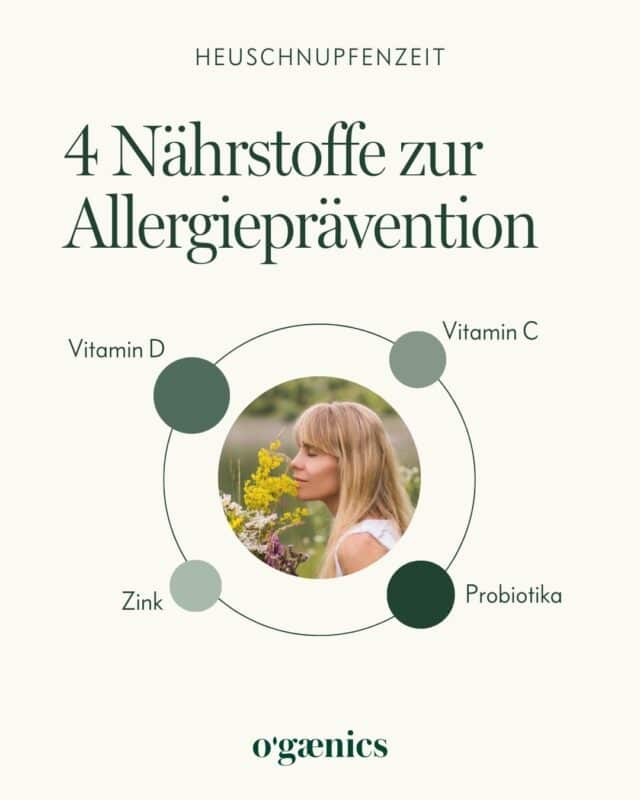
1. vitamin C
Vitamin C strengthens the immune system. However, it also acts as a natural anti-histamine. According to a 2018 study on vitamin C for allergy treatment, oxidative stress plays a key role in allergic diseases.
The researchers observed that high doses of intravenous vitamin C reduced allergy symptoms. The study also showed that a deficiency of vitamin C in return can lead to allergic diseases.
You will find high doses of natural organic vitamin C from the organic amla fruit with 240 mg per capsule for example in HEALTHY KICK or with 125% of the NRV reference value in Body Guard Immunity Complex.
Contains high doses of vitamin C
-
Bestseller
Body Guard
30-day cure Bio Immunity Complex with vitamin C, D, zinc, organic echinacea, elderberry and ginger39,90 €1.995,00 € / kg
-
Bestseller
Healthy Kick
60-day supply of plant-based organic vitamin C from premium organic amla extract with polyphenols for the immune system29,90 €869,19 € / kg
2. zinc
Mast cells are special cells in our body that store histamine and release it upon contact with an allergen. The trace element zinc can help stabilize these mast cells. As a result, these release less histamine in the event of a pollen allergy – zinc thus acts as a natural antihistamine.
To effectively stabilize your hay fever, you should consume between 10 and 20 milligrams of zinc daily, preferably with a meal. Seafood like oysters have the highest zinc content of any food.
Another option is Ogaenics Body Guard Immunity Complex, which contains 10mg of zinc per capsule. In the peak phase of your allergy, you are welcome to increase the normal daily dose (1 capsule per day) and take two capsules with meals.
-
Bestseller
Body Guard
30-day cure Bio Immunity Complex with vitamin C, D, zinc, organic echinacea, elderberry and ginger39,90 €1.995,00 € / kg
3. vitamin D
A deficiency of vitamin D is one of the biggest factors in immune system overreaction in hay fever. Because vitamin D contributes to a normal function of the immune system. And when we lack it, this tends to go crazy.
If we are not well enough supplied with vitamin D over a longer period of time in the winter months and the vitamin D stores are also finally depleted in the spring, our body is thus more susceptible to pollen allergies.
To get a better supply of vitamin D, you can eat fatty sea fish regularly. But that only covers 10 percent of your needs. The rest should be supplied from October to May via dietary supplements (e.g. Ogaenics Hello Sunshine Vitamin D3 Complex 2,000 I.U. and Hello Sunshine plus K2). You can find everything about vitamin D in our vitamin D guide for beginners.
4. probiotics
There has long been a belief among experts that taking probiotics can strengthen the immune system. This was confirmed by a meta-study from 2015, which also showed that this is true for hay fever symptoms. A total of 23 studies involving 1919 patients were evaluated in this meta-study. Seventeen studies have shown significant benefit from the use of probiotics, while 6 studies have found no benefit.
In addition, a 2017 University of Florida study showed that a combination of Lactobacillus and Bifidobacteria can increase the number of T cells in the body. These T cells can suppress hay fever symptoms in pollen allergies before they even develop, and thus represent a side-effect-free alternative to conventional antihistamines.
In Ogaenics Love your Gut Daily Biotic complex you will find a combination of 21 different probiotic bacterial cultures (Lactobacilli and Bifidobacteria) in combination with prebiotics in organic quality.
-
Bestseller
Love Your Gut
Bio Daily Biotic Complex Premium for the gut: 21 bacterial strains plus organic fiberab 39,90 €2.660,00 € / kg
What should you not eat if you have hay fever?
When the pollen count starts, your body is in alarm mode – a histamine-rich diet can further exacerbate the symptoms. 😮💨 Foods that promote the release of histamine by mast cells or even contain histamine themselves are
- Alcohol
- Caffeine
- Dairy products
- Peanuts
- Sugar
- Wheat
- Citrus fruits and citrus juices
- Chocolate
- dried fruits
- Shrimp
If you have an allergy to mugwort, it’s also important to avoid melons, bananas, cucumbers, sunflower seeds, echinacea and chamomile, as they can trigger allergic reactions in your system.
Better: choose low-histamine alternatives!
Swap hard cheese for cream cheese, replace tomatoes with beet & carrots and opt for pistachios instead of walnuts. This will take the strain off your immune system and give allergies fewer points of attack!

Conclusion
Certain nutrients can help relieve hay fever symptoms by boosting the immune system and reducing inflammation. Among others, vitamin C, zinc, probiotics, vitamin D and vitamin A can be useful in pollen allergy.
Nevertheless, it is important to note that dietary supplements alone are not sufficient to fully treat hay fever. A balanced diet and appropriate medical treatment in consultation with a physician are required.
Interested in our founder Suse Leifer’s hay fever routine? Click here for it.
We wish you a good time in nature – without hay fever symptoms!

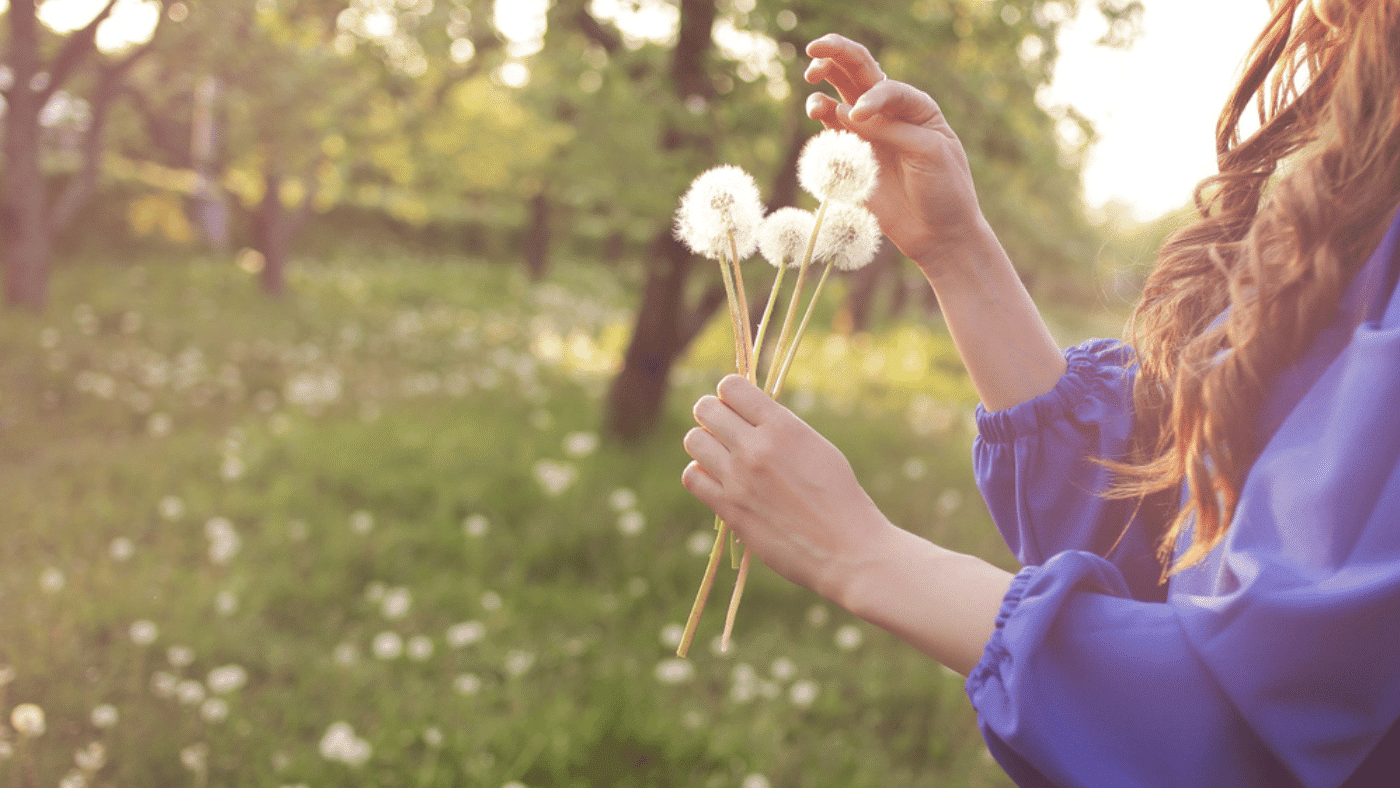


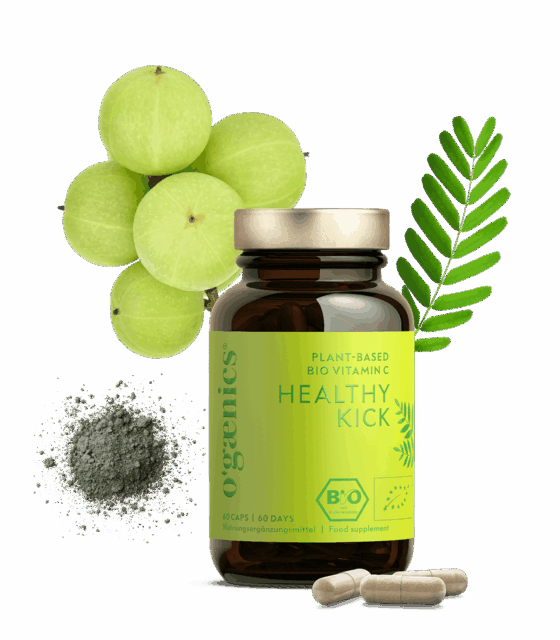

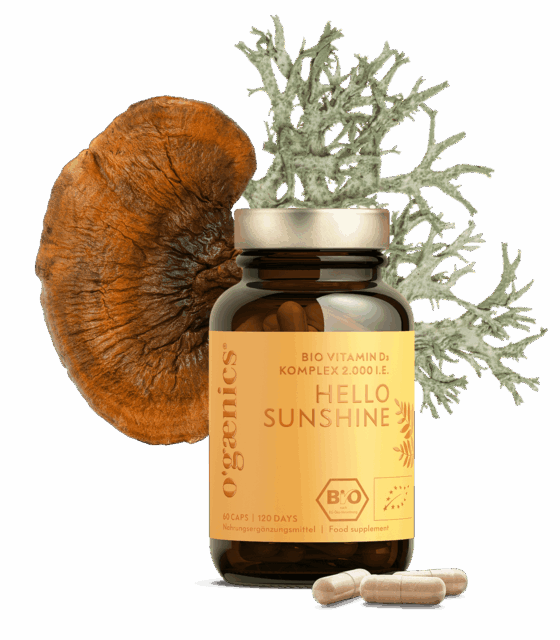

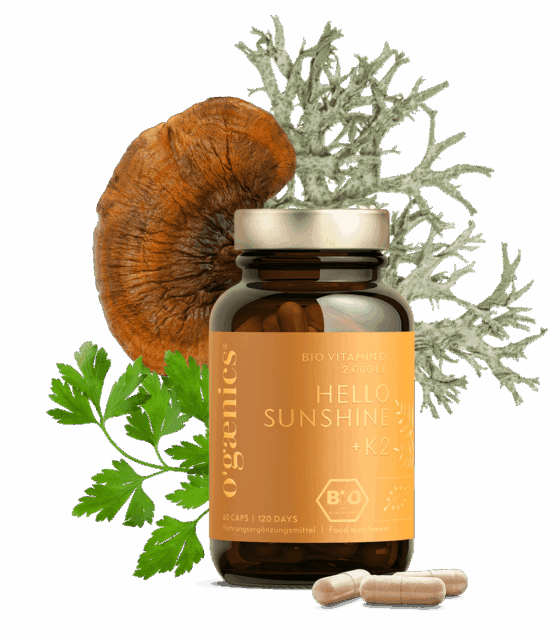
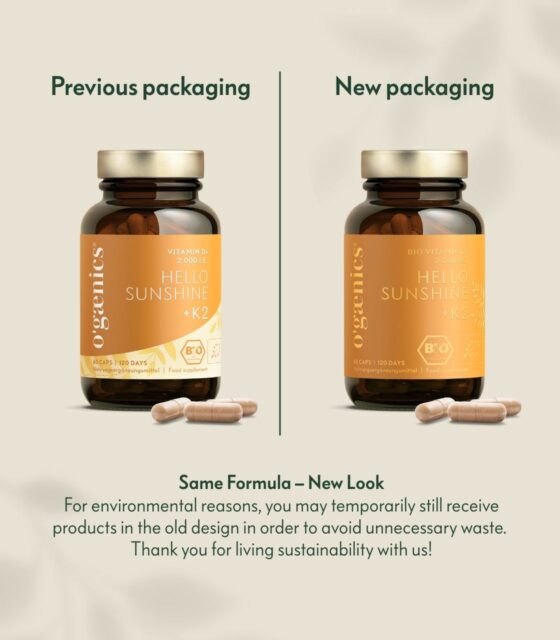





 No products in the cart.
No products in the cart.